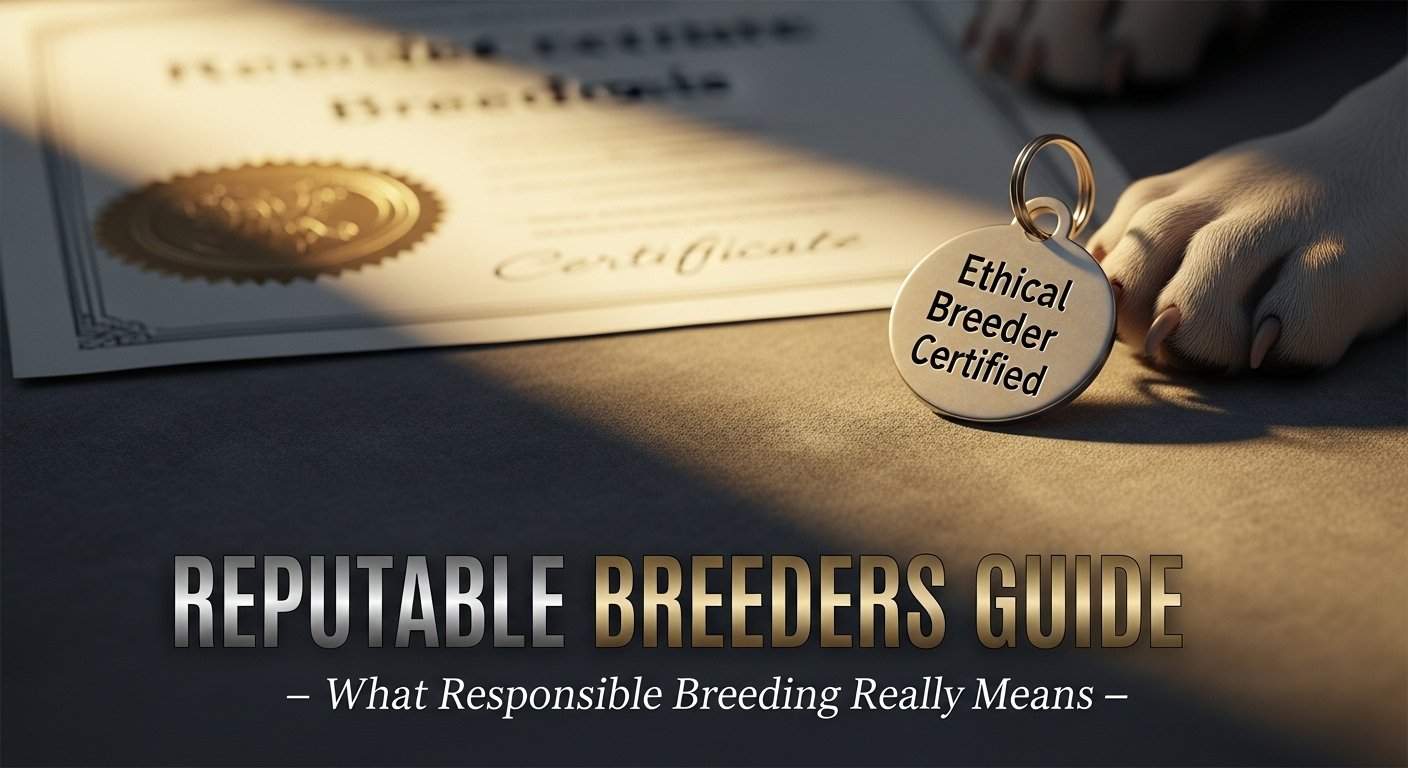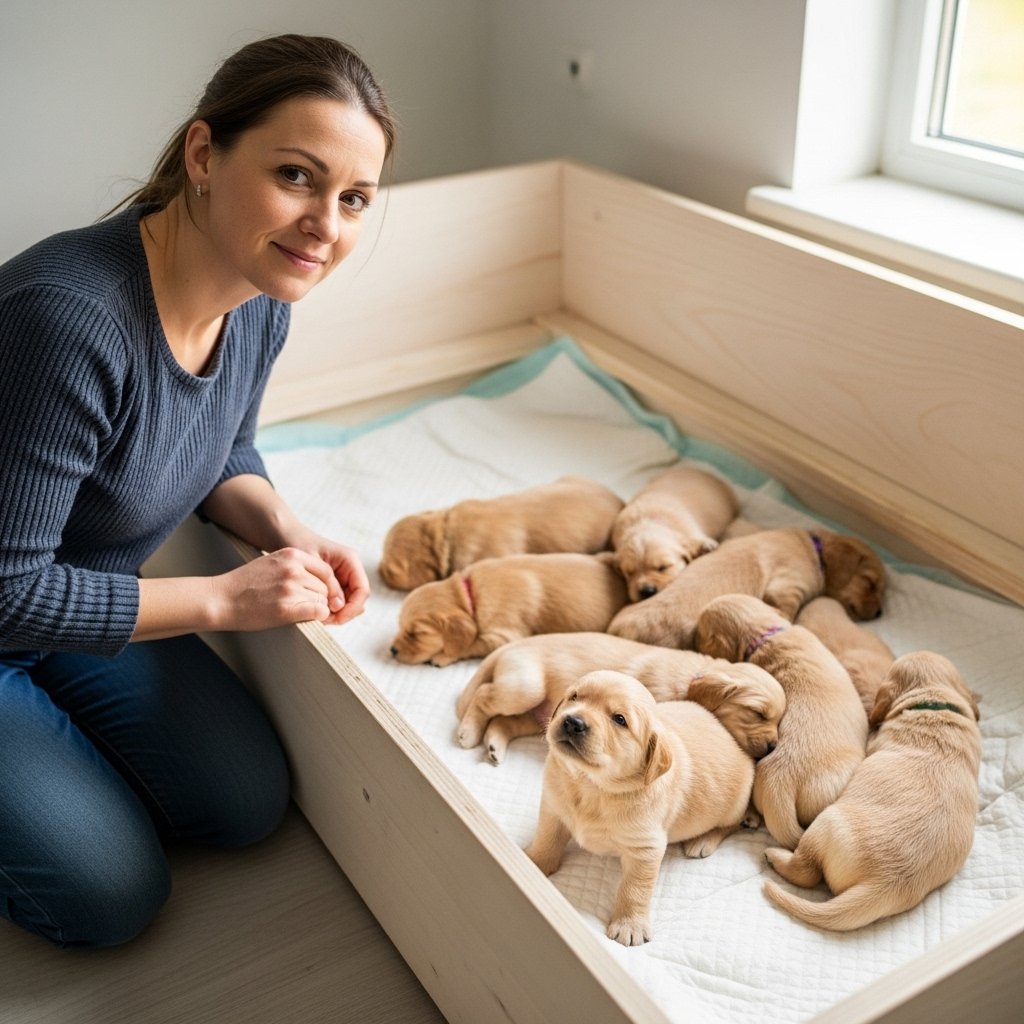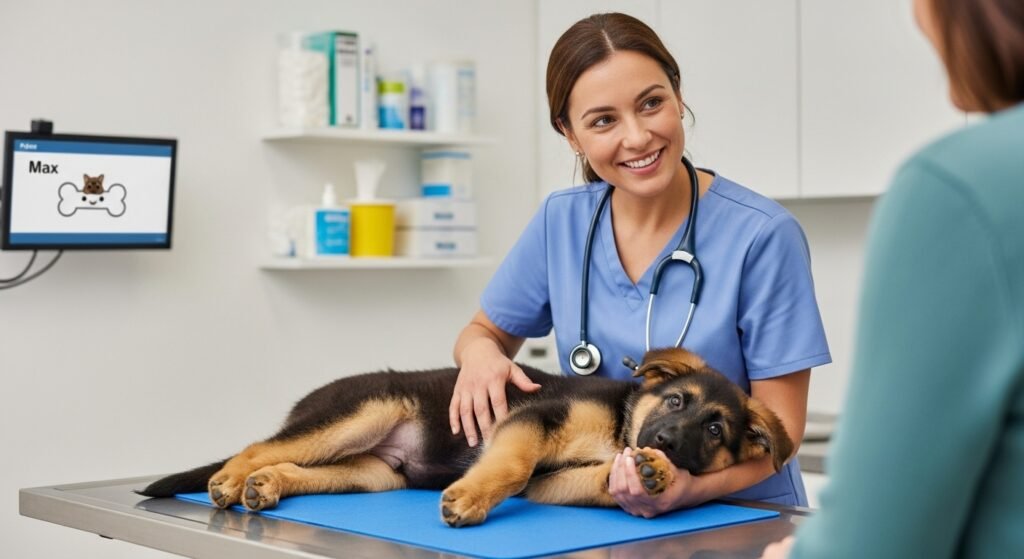
How to Find a Reputable Dog Breeder
Bringing home a new puppy is one of life’s greatest joys but finding the right breeder is one of the most important steps you’ll take as a future dog parent.
Unfortunately, the internet is full of puppy mills and backyard breeders posing as professionals. Choosing the wrong one can lead to heartbreaking health and behavioral problems down the line.
Let’s explore exactly how to find a responsible, ethical breeder in the U.S. one who truly cares about their dogs’ health, temperament, and future homes.
Why Choosing the Right Breeder Matters
A reputable breeder does more than just sell puppies. They:
- Carefully plan each litter.
- Screen for genetic health issues.
- Socialize puppies from birth.
- Provide lifetime support for new owners.
Meanwhile, puppy mills prioritize profit over welfare, keeping dogs in poor conditions and skipping vital health checks.

Step 1: Start with Trusted Sources
Skip random online ads or social media sellers. Instead, start here:
- American Kennel Club (AKC) Marketplace — lists breeders who follow AKC standards.
- Breed Clubs & Associations — like the Golden Retriever Club of America or French Bulldog Club of America.
- Local Veterinarians & Trainers — often know reputable breeders personally.
- Rescue Groups — some breed rescues also refer to ethical breeders.
Step 2: Visit the Breeder in Person
A visit reveals more than any website can. Look for:
- Clean, odor-free environment.
- Happy, healthy adult dogs and puppies.
- No overcrowding or stacked cages.
- Puppies raised in-home, not in a warehouse.
If the breeder refuses an in-person or virtual tour – red flag.

Step 3: Ask the Right Questions
A good breeder welcomes questions and asks you just as many.
Ask them:
- “Can I meet the puppy’s parents?”
- “What health tests do you perform on your dogs?”
- “How do you socialize your puppies?”
- “What’s your policy if I can’t keep the dog?”
- “Do you offer a health guarantee or contract?”
A responsible breeder will gladly provide answers, vet records, and proof of genetic testing.
Step 4: Review Health Testing & Documentation

Ethical breeders screen for inherited diseases common to their breed. Examples:
- Hip dysplasia (Labradors, Shepherds).
- Heart conditions (Cavalier King Charles Spaniel).
- Eye disorders (Poodles, Huskies).
Ask for OFA or PennHIP certificates and DNA test results. Never accept “My dogs are healthy, so I don’t test” as an answer.
Step 5: Evaluate the Breeder’s Communication
Good breeders:
- Stay in touch and provide updates as the litter grows.
- Ask about your home, schedule, and experience.
- Care deeply where their puppies go.
If someone pushes for a quick sale, refuses to answer questions, or won’t provide references walk away.
Step 6: Check Puppy Health & Vet Records
Every puppy should have:
- Age-appropriate vaccinations and deworming.
- A health certificate from a licensed veterinarian.
- Early socialization (handled gently, exposed to normal household noises).

Step 7: Understand Pricing & Contracts
Reputable breeders charge fairly not cheaply. Expect to pay for:
- Health testing and vet care.
- Quality food and socialization.
- Registration and documentation.
Avoid anyone selling “designer mixes” or “rare colors” for inflated prices.
Contracts should include:
- Health guarantees
- Return/rehome clause
- Spay/neuter agreement (if applicable)
Step 8: Ethical Breeders Don’t Overbreed
Ask how often they breed their females. Ethical breeders:
- Limit litters per year.
- Retire dogs after a certain age.
- Treat breeding as a responsibility, not a business.
Step 9: Look for Post-Adoption Support

Reputable breeders care about their puppies for life. They’ll:
- Check in after adoption.
- Offer training and nutrition advice.
- Take the dog back if you can’t keep it.
That’s the kind of lifelong partnership responsible dog ownership deserves.
Red Flags to Avoid
1-Refuses home visits or video calls.
2-Sells puppies under 8 weeks old.
3-No vet records or health testing.
4-“Puppies always available.”
5-Sells multiple unrelated breeds.
6-Doesn’t ask you any questions.
If it feels rushed or secretive it’s not reputable.
Final Thoughts
Finding a reputable dog breeder takes time, but it’s worth it. Ethical breeders raise healthy, well-adjusted puppies and care deeply about their dogs’ future homes.
By doing your homework, asking the right questions, and trusting your instincts, you’ll bring home not just a puppy but a lifelong companion who was bred with love, care, and integrity.
Ready to Connect?
Enjoyed learning about big dog breeds? Join the Pets Fun Zone community — a growing space for U.S. pet lovers to:
- Share photos, stories, and experiences
- Ask questions and get advice
- Discover recs for food, training, vet care, and more
Join us today at Pets Fun Zone and be part of a caring community of passionate dog lovers!
Let’s welcome all the gentle giants together.



